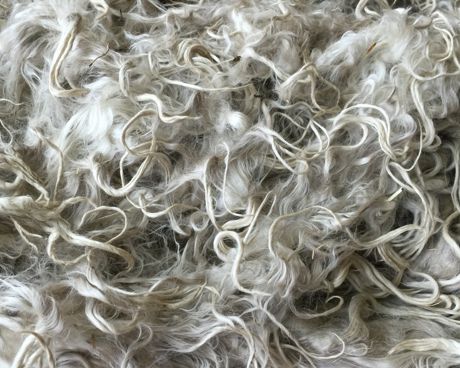
Alpaca incorporates the finest features of the world's natural fibers. It is as soft as cashmere and warmer and stronger than wool.
Alpacas, traditionally raised as fibre producing livestock, grow deluxe fibre valued by the textile industry and high fashion houses for it's desirable attributes. It is sought after for its luxurious softness, warmth without weight, range of natural colour and strength.
The world alpaca fibre production is around 5,000 tons.
Peru is the largest producer of alpaca with 90% share of the world market followed by Bolivia, Chile, New Zealand, Australia and North America. Most of the South American fibre is produced exclusively for oversea markets.
There are two types of alpaca: the huacaya and the suri. Although identical in body, these animals grow different fleece types. The huacaya, which comprises over 90% of the world alpaca population, has a teddy bear like appearance. Its fleece grows perpendicular to the body and is crimped or ridged. The suri's fleece hangs down from the body in a variety of ringlet-type lock structures. Suri fibre is very smooth which gives this fleece high lustre.
Alpaca is a natural, eco-friendly, product. It is grown organically and therefore contributes positively to the growing important 'green' conscientious market. The absence of grease avoids a heavy scouring process and the variety of natural colours minimizes the need for dyeing.
The absence of lanolin or grease in alpaca fibre is desirable for those who are sensitive to sheep's wool or allergic to the lanolin; they might be able to comfortably wear garments made of alpaca fibre.
Alpaca is easily dyed and retains its natural lustre.
Alpaca feels smooth and silky to the touch. The scale like cells (cuticle), which make up the outer cells of the fibre protrude half as much as that of the sheep's wool resulting in a smoother, slicker feel.
Alpaca is fine, soft and warmer than sheep's wool. The fineness of the fibre is measured in microns (1 micron =1/1000 of a millimeter). The lower the micron, the finer the fleece; demanding a higher monetary value.
Alpaca is strong and resilient, thus making it an ideal fibre for industrial processing. It is naturally water repellent. Alpaca does not easily tear or pill and is cleaned without trouble.
Alpaca has good thermal capabilities and is an ideal product for the Canadian climate.
Alpaca is an elite fibre. It is extremely versatile and is desired by clothing manufacturers around the world.

Alpaca end products will drive the industry. Canadian alpaca fibre producers have the option of marketing their raw fleece or value-added products from their own farm or as part of a national producer-owned cooperative.
Alpaca producers may choose to sell their farm's raw fibre or value added products at farm gate or web based stores. Raw fibre can be sold to the artisan community, or value added by processing the fleeces at numerous custom mills around the country equipped to spin small batches (as low as 5lbs) of fibre into various sized yarns or to make batts for felting and/or stuffing for bedding.
Canadian alpaca producers have support in learning how to deal best with the fibre clip through seminars and workshops offered at various alpaca show events.
A Certified Camelid Fiber Sorter training program is available please contact the office for more details.
For information about alpaca care, fibre production and more, please complete the request form.